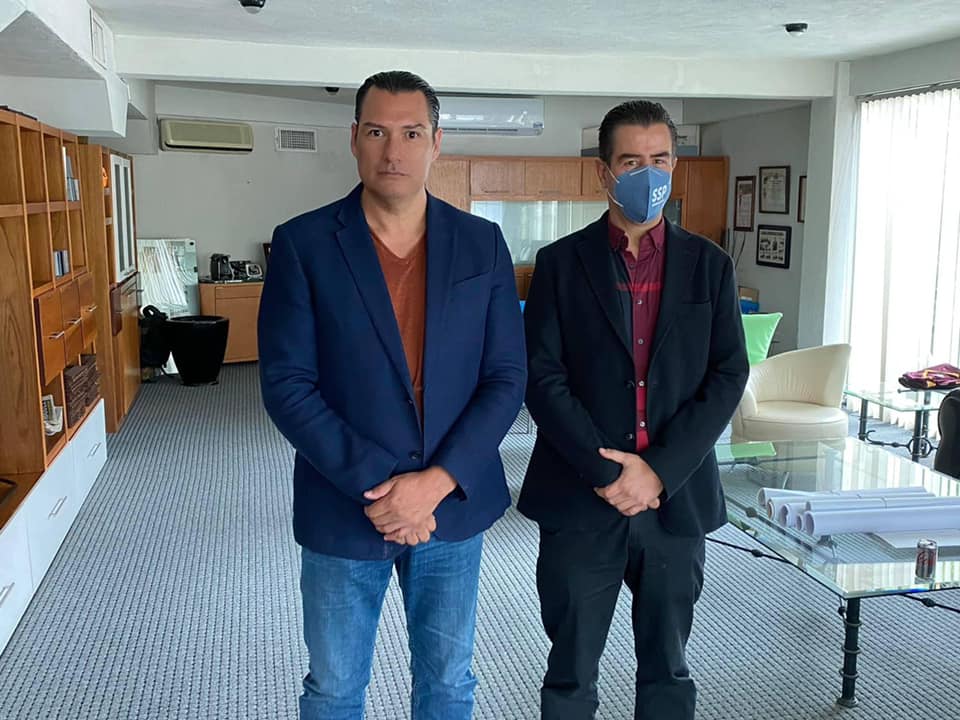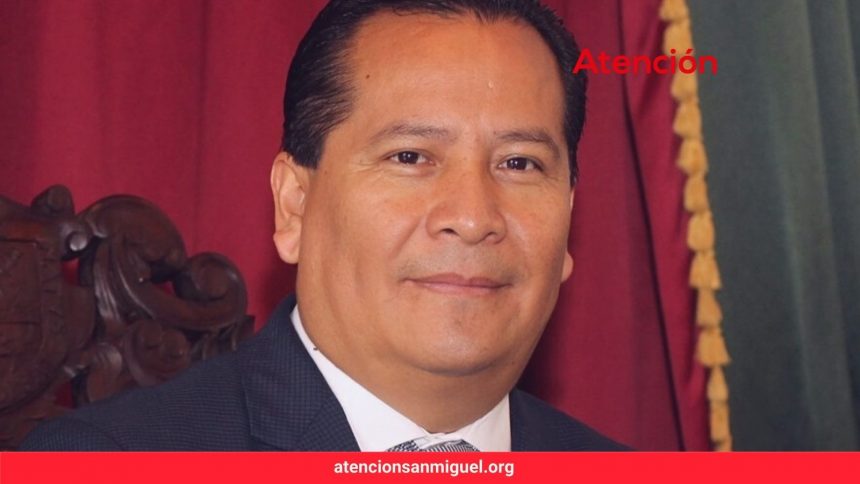The electoral process whereby Mauricio Trejo (PRI) was elected mayor took place on June 6. However, he will not officially take the oath of office and become the mayor of San Miguel de Allende until October 10. On the same date ten aldermen and the trustee will be sworn in.
This is all under the shadow of a dispute over alleged voter fraud, an accusation of the PAN party. PAN contends that Trejo exceeded the amount limit to spend funds in the campaign by more than 50 percent; that he campaigned during the voting hiatus (a break in all campaigning) via social networks; and that he did not report events and other data to the National Electoral Institute (INE). The INE denies the PAN’s accusation. The PRI Sanmiguelense declared, “The Administrative Penalty Procedure, under INE file Q-COF-UTF/798/2021/Gto was declared unfounded by the federal electoral body. The PRI released the necessary documentation to demonstrate that its candidate for the office of mayor of San Miguel de Allende reported 129 events. It was delivered to the INE in due time and form.”
Luis Alberto Villarreal, the PAN mayoral candidate, who received fewer votes than Trejo, commented that the national PAN challenged the INE to thoroughly review the PRI campaign. It especially questioned the origin of the economic resources, claiming that there was voter coercion through food, pantries and cash. Nevertheless, Mauricio Trejo feels sure of his victory, and has already introduced two of the directors who will be in his cabinet: Roberto Pérez, Civil Protection; and Emilio Lara, Centro Histórico.
These are the claims that the electoral authority (State and Federal) must unravel in the process that seeks to annul the election. This must take place before October 10. If the PAN is successful, new elections will be called for the City Council; each party would have to present its candidates again (although they could be the same candidates), with the exception of Trejo, who could not participate because he was already elected as mayor.
Luis Alberto Villarreal requested a permit and has on an indefinite leave of absence from the office of Mayor since the end of March. He did this in order to run as candidate for reelection as Mayor and he has not returned to the City Council. Since end-March the Council has been under the leadership of Jesús Gonzalo González. In an interview, Gonzalo González indicated that in San Miguel the challenge is that no difference is made between the haves and the have nots.
Jesús Aguado: Mr Mayor, this is your second time to serve as mayor, although not by direct election. Will you continue in office and complete the term until October 9?
Gonzalo González: This is a decision of the Mayor (González is the acting mayor.) I am delighted to fulfill the position as requested. If this is to conclude in October, we will continue working day after day, in communities, neighborhoods, supervising and inaugurating works. We are present throughout the city and we will remain so during the period that I am mayor. This administration has done a lot of work, and we are not going to stop.
JA: As mayor, do you want something particular to happen in the city?
GG: We need the most beautiful time of the year to continue. I would like to continue to have the smiles of the people, of the children, when we inaugurate works. We have over 50 packed ground football fields. That is what I would like to see happen, to see smiles. Large projects, such as Calle Ignacio Allende, Independencia, Principal la Luz, and Cinco de Mayo are finished, but not inaugurated. They are emblematic for the administration. The football stadium is progressing well. It is not finished yet and first division teams have already requested it to look for subsidiaries in San Miguel. They want us to lend it to them. It will be a very nice stadium.
JA: A few months after having “completed” the underpass the concrete of one lane was raised. What happened, and how much did it cost?
GG: These are projects that, as in any case if there are any imperfections, they must be fixed. In the case of the bridge, some plates were cracked and they were replaced. The work was guaranteed, and the replacement did not cost us a penny. This can happen in any project. This administration requested the contractor correct the inconsistency.

JA: An emblematic work of this administration, and officially under way for three years is the Cieneguita Bridge. Will it be inaugurated before October 10 of this year?
GG: For sure we will not be able to inaugurate it. For two years we have promoted it. Many procedures took time to process. Due to the contingency many federal offices were closed. For example, one of the most important permits was from the National Water Commission, which took over a year to approve. Another was with the Ministry of the Environment and Natural Resources. The executive project was already in place, including the release of properties and the budget, but not the authorizations. We finally got them and construction began this year. The contract will remain in place; it will be carried out by the state government. The work will be of great benefit.
JA: And the project to drill seven wells and bring water from rural San Miguel to urban areas?
GG: This project is still under development, it is not just the wells. It is the conduction pipes, sumps, tanks to distribute water to the entire city and guarantee it. The project continues to evolve. As it is in the macro stage it will surely continue with the next administration if it sees fit to do so. It will provide continuity because it is of great benefit to the citizenry, regardless of party. Imagine if they said no to the Cieneguita bridge?
JA: Nothing has happened yet with the initiation of Boulevard de la Libertad, which would connect San Miguel to Dolores with four lanes?
GG: When the governor proposed the project, the mayor requested the City Council approve 15 million pesos to carry out the executive project. It is a critical project for the area, for the state, for the benefit of all. It is also a reality. The executive project is about to be completed, the release of properties will continue, and construction will begin in November. The timeline could vary according to the permits. We did everything possible to get this road under way, the mayor worked at it, the governor said yes.
JA: How are you taking care of San Miguel in the face of the pandemic?
GG: The sanitary filters will continue because infections are increasing, there is a resurgence. We must not let down our guard even though hours have been extended in restaurants and bars [to 1am]. We must follow health protocols. As long as citizens are not vaccinated, we must continue with precautions so that a new wave does not take us by surprise.
JA: Is closing the city an option?
GG: We will continue to be guided by what the Department of Health tells us, and will listen to the recommendations of the business sector. So far there is not a large enough number of infections to make us close the city; it will depend on different sectors, the citizens, and the Department of Health.
JA: How about opening discotheques?
GG: This is not the time. For those who work in these places, we understand the economic issue, but the idea of a resurgence is worrisome. Some places functioned as discos; they cut their hours and now they work as restaurant-bars.
JA: You commented that smiles are what you would like to see in San Miguel in the time that remains of this administration. If you were mayor for three years, what project would you like to see undertaken?
GG: The integration of San Miguel, no disparity; no difference between the haves and the have nots. That is the challenge in San Miguel. That there be less of a gap between those who are better off and those who are not. People identify completely with the great potential of San Miguel.
JA: Could you achieve that challenge?
GG: I would love to do that.
JA: Would you like to be mayor by direct election?
GG: To any of us who are dedicated to politics, we look for an opportunity. A politician always wants to be mayor of the municipality. It would be an honor to run for election.

